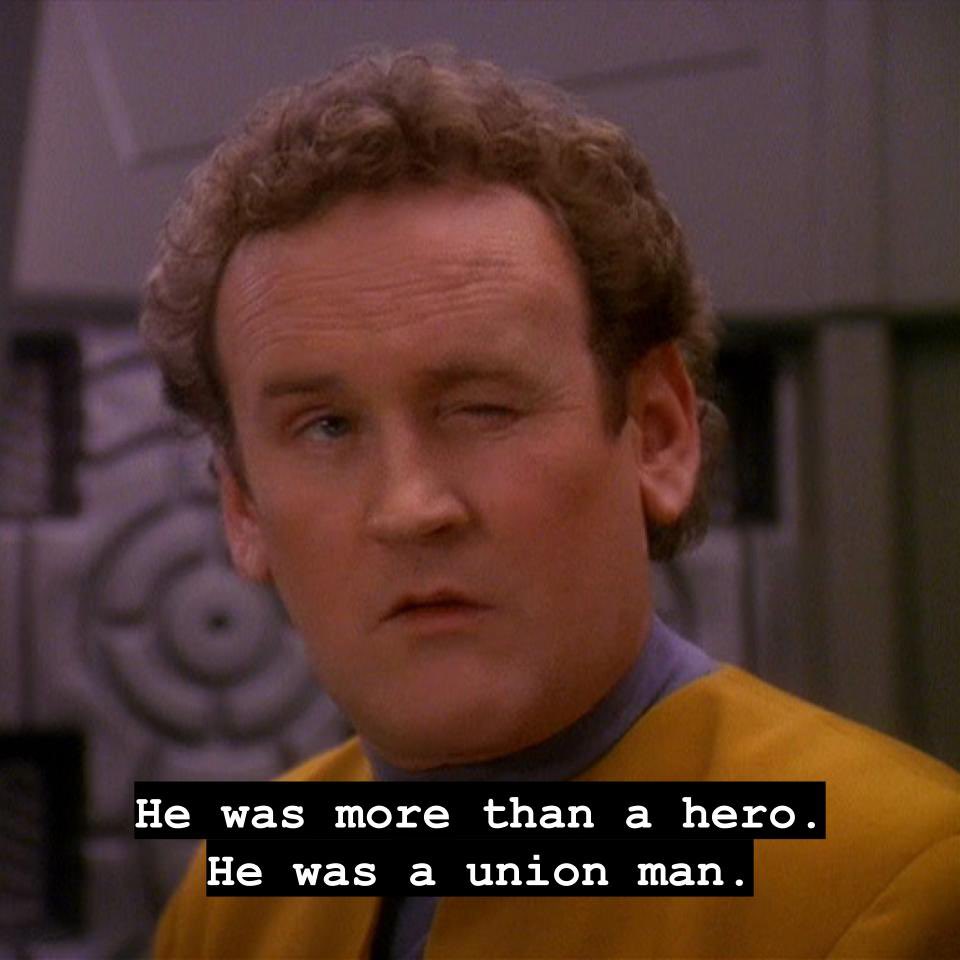- cross-posted to:
- [email protected]
- cross-posted to:
- [email protected]
Put a hard stop to the purchasing of homes by corporations/businesses and people with no intention of living in them.
You should need proof of intention to live in the home within a reasonable amount of time after the purchase in order to make the sale. The flipping of homes for profit by those with cash and more money is a detriment to the market and the american dream for the rest of the population trying to get a foothold.
The problem isn’t necessarily flipping houses, if the ones doing the flipping really are improving the property and are able to refurbish old properties to be more appealing. If they put in the work, they deserve to make money off of that - but they only make their money if they sell.
The problem is corporations who buy up housing stock, with no immediate plans to resell. They view houses like a commodity, and if they constrain supply in certain areas they can artificially create profit. This profit, though, comes at the expense of everyone who is looking for a home at the time.
I think the solution is for localities to step in and crank up property taxes for residential units that are not either occupied or actively on the market. Once a company keeps a property off the market for a year, make it much more painful for them to hold it for another year.
House flippers are incentivized not to make good, long term, sustainable, or efficient home improvements. Their only incentive is to make a house more sellable upon initial inspection, house flipping is a bad practice I would argue far more often than not.
The problem is housing as an investment like a stock. They should be commodities.
house flipping is a bad practice
I spent the last year looking for a house to buy, and since it took me a year I got to see many of the shit-bucket houses I was looking at (since they were in my price range) get bought up and “flipped” - which usually amounted to just some paint slapped on everything and those fucking grey fake wood vinyl planks that everybody loves these days put down everywhere - and then resold for absurd prices. I respect people that do a good job of renovating houses, but most of these flippers aren’t doing that.
I’m in no position to buy a house, but I like to browse and dream, and my mindset at this point is basically–give me an honest old house that hasn’t been renovated since 1970…at least I can SEE the problem-spots (cracked this or that, stains, etc.) and make a plan on how to tackle them.
Like, my gut feeling when I see that horrible silver-blue color scheme anything flipped/“renovated” in the past few years is to run as fast as I can. You can’t plan, you don’t know what you’ll have to tackle, it’s all hidden under fresh paint or flooring. Is there mold? Who knows. Water damage? Who knows. Old pipes/electrical/etc. that need fixing? Who knows, the signs that might have given you a clue were hidden or pulled out. It’s all a big mystery.
deleted by creator
Hey I like the grey wood floor look lol
Inherently, flipping houses is about increasing the price of the home. This directly relates to the article by making more houses further out of range of more people.
Houses with issues might not be able to be financed by a mortgage. So a company/individuals will fix the issues, then resell the house to someone who can now get an FHA loan for it.
FHA loans have strict requirements on the condition of the house in order to give funding.
If someone does work on the house, they should get paid for their efforts.
Hard agree. Also they can slap a really big transfer tax on non-owner occupied as well.
Non-owner occupied properties already aren’t eligible for the capital gains exclusion. I guess we could make unoccupied houses subject to regular income tax instead of capital gains tax rates would further discourage empty houses. That, and higher property taxes would probably be enough.
I live in a high property tax area and even though prices have gone up, it’s nowhere near as crazy as other parts of the country.
To add, the corps buying up housing are also the ones that have the most potential to back housing builders, but since they’re buying up stock to artificially decrease supply, then they’re deincentivized to support builders. I really wish these big corps had some sort of for each unit you buy, you must build a unit within the next 2 years.
Good point! That’s a great idea.
Higher taxes is just a cost of doing business which is passed on to other tenants, be it long or short term rentals, even if housing stock is temporarily held - though I don’t disagree that such a vacancy tax is a good.
GP was right - forbid corporations from owning any residential property if 4 or fewer units and greater than four unless the building is wholly owned.
On the tax side, add a purchasing tax of 15-25%, 90% of which is rebated at closing for non-corporations who have not received the rebate in the previous 24 months. That targets flippers and property-bros willing to go naked on liability.
This would take all the single family and duplexes off the rental market and make a ton of people homeless. No thanks. There’s enough people homeless in this country due to drug and alcohol issues.
We do need to have an exception for those who need to buy through a corporation in order to protect their privacy, especially with the rise of professions such as streaming.
Those professions aren’t going to be going anywhere anytime soon.
Rather than a hard stop, I think it would be a good idea to significantly increase taxes on real estate no one is actively living in, and use the proceeds to subsidize construction of new housing.
This seems to be the most reasonable. Disincentiivize multiple property ownership rather than outright ban it. The ones who can eat the cost will pay taxes and the rest will just bow out of the market.
But housing is a need and people will keep paying any price to not be homeless, this feels like it leads to massive corporations still owning all of them and paying large taxes they can eat short term and raise to massive prices of rent. Maybe they dump some stock but I’m just not sure it does much other than diversify smaller investors that used property for assets
this feels like it leads to massive corporations still owning all of them and paying large taxes
Then the taxes aren’t high enough. That’s an easy fix. It’s one of those times the state doesn’t want to optimise the rate for total tax earned but to make paying it for any length of time actually prohibitive. Make it so that they can’t possibly raise rents high enough to cover those taxes and they’ll understand quickly.
The other side of the equation is a bit harder, and that’s housing overstock: Companies will be sitting on housing they can’t rent out due to lack of demand for housing. One idea would be to allow them to lease homes out to municipalities for literally nothing but tax forgiveness and the municipalities can use that to house the left-over homeless, unemployed, etc. Call it a half write off. Oh those leases need sensible minimum durations, I’d say five years is a good start.
smaller investors that used property for assets
You can easily make smaller investors be hit significant less by it by scaling the tax to the number of vacant housing units. Own a second home you rent out and spend four months finding a renter you like? Fine, pay ten bucks. Do that to 1000 housing units? Pay 10000 bucks for each.
Yes, those kinds of rates are right-out financial violence. That’s the point: The state has to step in as the larger bully to keep the small ones in check to avert market failure.
Your argument falls flat once you remember that there is in fact plenty of homeless people and there will always be those who will choose not to pay irregardless of logic or desire of self preservation. And while yes, any privatization of housing isn’t really any good, but you don’t have to make it impossible for them to make money off of it. You just play their own logic against them and keep it just on the line where they will ultimately go for something else to profit off of other than housing as their returns and infinite growth will eventually lead them into microscopic margins so any variability becomes a threat to the bottom line.
Rather than a hard stop, I think it would be a good idea to significantly increase taxes on real estate no one is actively living in, and use the proceeds to subsidize construction of new housing.
An alternative is to replace property tax with a land tax. That way instead of penalizing people for building more housing, they are penalized for holding onto land that could be used to house more people (or whatever other use is in mind).
Nah tax the fuck outta landlords
There should also be taxes on rental properties beyond the first to prevent the “hoard and rent” cycle
I disagree, because that would disincentivize housing. I think the price of housing is mostly just a function of how much of it is on the market. Wealth inequality is also a problem but should be addressed in other ways.
As an aside, the tax should also apply to commercial real estate so there is an incentive to convert offices to apartments.
take the houses, take the landlord’s wealth they scalped, then fix it.
Landlords don’t “scalp wealth”. The income they earn is from working their job. Just like anyone else who is self employed.
removed working how? sitting there and collecting passive income? Are you fucking stupid?
How about being civil instead of name calling?
No
You’re essentially talking about decommodification of housing, which is the only correct answer. It is necessarily impossible for a house to be both affordable and a good investment, and the current status quo means that housing will be used as an investment. Whatever mechanism used to fix the housing affordability problem will require that housing no longer be subject to commodity market forces.
The value of a house should be in reduction of costs, not increase in real value.
When you rent, you pay for maintenance of your residence, some amount of furnishings, and the risk tht property owner takes in renting to you (i.e. the likelihood that you’ll destroy the property, fail to pay, etc).
When you own, you take that risk on yourself. You can choose to delay, DIY, or preempt repairs. You can choose what level of furnishings you have, and you are responsible for any loans or taxes due on the property. You don’t need to worry about unplanned vacancies.
Housing should keep pace with demand so property values stay roughly consistent with normal inflation. Unfortunately, cities tend to grow, making existing property more valuable.
When you rent, you also pay for the flexibility of being able to pick up and move in a short while if you get a new opportunity somewhere else, or just want to move for whatever reason.
Some people rent because they don’t want to worry about repairs, or mowing lawns, or any of that stuff.
They’d rather spend $3,500 taking a nice vacation than on a new furnace.
When you rent, you still pay for that $3500 furnace, you just pay for it in monthly installments through your rent instead of all at once.
You can accomplish the same thing with home ownership by using sinking funds. Basically, if you expect that furnace to last 20 years and cost $3500, you’d set aside ~$15/month, assuming your furnace is new. If you expect repairs in that time, set aside enough to cover that cost as well. If you do that for enough of your major repairs (roof, major appliances, driveway, etc), you should always have enough in the fund to meet any house related emergency, assuming your estimates are accurate enough on average. I do this in my budget by using online estimates for expected lifetime and cost to replace, and I do my best to make things last longer than that estimate. I do the same for cars and other large expenses so I’m always prepared.
That’s what landlords do, and homeowners can do it too. Budget for repairs just like you’d budget for a vacation.
Your first point is more important though. Selling a house is expensive and time consuming, so it absolutely makes more sense to rent if you expect to need to move with short notice. You’ll pay a premium for that convenience, and you’ll also not have to worry about repairs. For some people, renting is less expensive on net vs owning even if they don’t need to move quickly, e.g. if they know they’ll overspend on renovations and repairs. There’s absolutely an argument to both, I’m just pointing out that the value in a house isn’t in the appreciation imo, it’s in potential cost savings by taking ownership of repairs, vacancy, etc.
The problem is not that the furnace is $15/mo, it’s that it requires having $3500 all at one time. Newer furnaces have circuit boards on them and seem to require more repairs and maintenance. Everything does really. Appliances, water heaters, etc. There’s lots of expenses to home ownership and expenses that happen suddenly instead of being able to plan neatly for them.
Right, and those can be anticipated and mitigated. Options:
- home warranty - essentially forces you to save for larger expenses
- be pessimistic about expected lifetimes - i.e. only assume your appliances will live while they’re under warranty (most can last more than double that with proper maintenance)
- forego most or all other savings until you can pay for the highest ticket item in cash - it’s extremely unlikely that everything will fail at once
If something truly out of the blue comes up, you’re usually in appliance warranty or home owners insurance claim territory. The vast majority of the time, “unexpected” expenses could’ve been planned for, but the individual didn’t do their due diligence. A 20 year old furnace going out isn’t an emergency, that’s its expected lifetime (and with maintenance, a high quality furnace can last double that).
Owning a home is expensive, and so is renting. If you’re paying more owning a home on average vs renting for the same size of place (after, say, 6 years or so), you’re doing something seriously wrong.
Again, not everyone who owns a home saves up for those things. Case in point, one of my friends budgets for an annual furnace tuneup at the end of summer. Well, they discovered that the furnace is dead and won’t start up once it gets cold. So her plan is to work a second job for a month to be able to afford getting a new furnace since it’s close to winter.
If she was renting, the owner would simply replace the furnace and she wouldn’t have to worry about it.
To add to that, put a limit on airBNBs and similar, you can only have one. Corporations are buying homes and small apartments for that too.
It’s gotten out of control. I would say one in ten houses in my neighborhood are airBNBs.
It’s disgusting because airbnbs in my area can have 50% occupancy and do better than a long term, meaning for about 180 days of the year that housing is just artificially decreased supply.
$200/night * 15 days = $3k/mo
If you want to operate an airbnb in Berlin you need a hotel license (unless you actually live in the thing at the same time, or only do it for I think about a month a year, say when you’re on vacation). Long story short the city isn’t giving out any licenses in areas with high rent pressure, which is basically all of Berlin.
But those things are highly regional, there’s plenty of villages in the alps with an absurd amount of tourist accommodation compared to the number of regular inhabitants, but they also don’t have any industry but family farms and tourism. If you own something on Sylt and somewhere else you’re paying sky-high secondary residence taxes (rich fucks don’t rent they just buy holiday homes).
How is your homeless situation, does it alleviate it somewhat?
Municipalities are required to house everyone so the situation doesn’t even begin to be comparable to the US. Ballpark a shabby dorm room to yourself as the minimum, bath and kitchen might be shared, washing machine will almost invariably be. In Berlin there’s about 27k living in those shelters, about 2k are sleeping rough, and that’s as a metropolis smaller cities tend to have zero. None of that includes people crashing on somebody else’s couch, but it does include apartment burned down and you don’t want to pay for a hotel until you find something new kind of situations.
The official term is “emergency accommodations” and they’re supposed to be short-term, hence also the low standards, but we haven’t built enough social housing in ages and the stuff that got build constantly stops to be social housing as municipalities cheaped out and simply tacked “X% of units as social housing for 30 years” onto building permits, which leads to municipalities push come to shove having to rent hotel rooms and eat the difference.
The whole situation could be solved within a decade if we re-instituted the social housing programmes of the 50s, and you can’t do it as one-off investment as construction companies aren’t willing to increase their own capacity for a short-term boom.
Side note: Berlin had a referendum to expropriate all landlords who have more than 3k units, it passed, but wasn’t 100% binding and politics is dragging its feet implementing it, including the social democrats. With legalities out of the way though they’re now starting one that would be immediately applicable law.
The reasoning of the socdems isn’t even completely wrong, “we should build instead of expropriate” but MFers don’t seem to understand that people are out for blood. If the people want to expropriate something you can say your bit that you think that there’s better solutions but fucking do it. Especially in the east.
And, no, the landlords won’t get compensated at market rates. The whole thing is possible because for landlords housing units are means of production and Article 15, Berlin doesn’t even have to show it’s for the public good. Eminent domain type stuff is Article 14, 15 is way stronger and there because the constitution was deliberately written to be compatible with democratic socialism.
You guys are kind of bad ass taking care of your own though, even if there are politics around it.
How about expropriation of these homes instead of just a half assed “can we put a pause on capitalism guys?” You realize what the problem is. No more half measures, Walter
First step is seizing the ones they already bought, at gunpoint if they resist
As for “the market and the american dream”, lol. lmao, even
Death to America
well that doesn’t sound like free market capitalism!
331.9 million (2021) US Population / ~142 million housing units in the United States (2021) = ~2.34 people average needed per dwelling to fully house everyone.
According to Statista: " The average American household consisted of 2.5 people in 2022. "
If people did not need vacation homes, and investment property… We appear to have enough housing for everyone already.
I’m working under the assumption hotels/motels are not included… there should be plenty of those to house people on vacation, and leaves plenty of room for the ultra wealthy to still have their vacation homes.
Sources: Statista, US Census, Google
ATL had a pretty good program at one point. If you made $60k, you could buy a $250k house with the requirement that you would be the primary resident for the first year.
What’s even better is that the comparables in the area were all $450k, so 3 years later, all of the homes got valued around $500-600k.
its maddening there are plenty of homes out there completely empty
Just levy additional taxes on the homes that aren’t owner occupied and make it less attractive to investors.
This situation has turned into a real cock for so many people.
The place I got my mortgage through sends out emails regularly with updates on my home value, current rates, and other assorted stuff. I originally bought this house at the tail end of 2020. It’s not the best house around, still needs work, but it had the room we needed, was in our budget (220), and the payment was low because the rate was great (2.75). Our original plan was stay here a bit, get rid of some debt, and then maybe try to find what we’d like to be our forever home, wherever that may be (we’re 44).
That idea went south in a hurry. What once probably wouldn’t have been worth sinking extra money into to fix, may now be the only choice. The aforementioned newsletter has a section where it shows what you could “save” at current rates by refinancing or taking cash out. The most recent one said I could “save” -$213400, meaning if we refinanced to take cash out to fix things up right now, it would cost us the entire price of the home yet again, on top of what the home and interest will already cost. Where a home in the 400’s was achievable before, our home in the 200s would nearly not be now.
I feel terrible for people having to try to achieve home ownership at this point, or probably for the rest of the decade. On the one hand, I understand how fortunate I am to have gotten in when I did, and to have a home period; on the other, like many, I’m now essentially trapped, which has the ripple effect of keeping both rates and prices high because most people aren’t going to trade a sub-3% mortgage for 7%+, assuming they can even find a place to go at this point.
Add in corporations branching out into a new area to do their level best to eliminate the concept of ownership for the majority of people, and politicians focusing on the more serious global issues like who goes in which bathroom, and my hope for the future couldn’t be squashed any further if you put it in a hydraulic press.
Real estate will crash, eventually. Hard to predict exactly when and why, but if history is any guide, a market crash eventually is practically inevitable. It could conceivably happen relatively quickly for any number of reasons, but crash it will.
That doesn’t necessarily mean it will become readily affordable - when real estate goes south, a lot of other stuff will be crashing with it. History books are full of monumental calamity. There’s no reason to expect that to change.
This time is different. The new business model isn’t selling homes - it’s single family rental.
I coordinate all development projects in one of the fastest-growing cities in the county, and 100% of new single-family projects proposed since 2021 have been build-for-rent.
Why sell someone a house when you can rent it to them forever AND increase the price every year.
Practically all housing development is financed with borrowed money against the property. Given the build-to rent model, the party at the end of the cashflow stream relies on rent checks being paid every month to remain solvent. When the rents stop being collected, at some critical point, some loan that is reliant upon that rental stream will default. When that happens, the properties are called in by the borrower and auctioned off at foreclosure.
Now yes, the major lenders, developers and speculators will spread their risk as much as possible by diversifying their portfolios and try not to be caught short by a problem in any specific market. But when there is a some kind of macroeconomic shock, ALL the markets will suddenly contract and be flooded with foreclosed properties and other rapidly depreciating assets. That’s more-or-less what happened in 2007. Massive liquidity injections and historically low interest rates supposedly saved us from a prolonged financial catastrophe then - but there were still a LOT of foreclosures. I also think we are still seeing that situation playing out today. Current housing markets are unsustainable in a climate of higher interest rates. This will all come crashing down, probably sooner than most people expect. When it happens, it happens fast - and of course the reasons will seem obvious with hindsight.
By the way, perhaps you’re being ironic - “This time is different” is the defining catchphrase when looking at historical financial crashes: https://www.economist.com/media/pdf/this-time-is-different-reinhart-e.pdf
I’m not saying a crash definitely won’t happen, but these BFR projects are a different beast than what we had in 2008. There are lots of reasons this isn’t as financially risky.
The biggest factor is how they’re being financed. They’re mostly doing public financing where the lender is the municipality and it’s paid back with extra taxes attached to the development agreement. The interest in these deals is usually 0%. The idea is that the government makes is money off of the tax money from the residents.
If the development falls through the government will just put a tax lien on the property for the past-due portion of the 25-year 0% deal that will be bought up cheap and fast by the next group.
Interesting. Thank you for the very enlightening info. So the local government is providing interest-free loans to developers for BFR projects, when prevailing rates are over 5 percent?
If the scope of BFR subsidization is as large as indicated then it’s probably buoying the housing market. A quick search found this glowing report on the BFR “boom”.
https://rei-ink.com/the-build-for-rent-evolution/
Real estate developers getting free government loans from public treasuries. What could possibly go wrong?
The housing market isn’t going to crash. New homes aren’t going to flood the market and demand for homes will not fall. As long as we have a growing population the price of homes will also increase.
Yes, there is finite supply and ever-growing demand, however the price of real estate ultimately reflects both the buyer and lender’s confidence that the mortgage payment will be met. This can be affected not only by interest rates but by labor market conditions and other factors.
If there is a sudden surge in interest rates in response to some kind of inflationary shock, or the credit market becomes suddenly much more restrictive in terms of lending standards, then housing prices will most certainly fall, simply because the pool of potential buyers at a given price level is smaller.
When pressures on the housing market are coupled with leveraged loans on variable rates going upside down, people will begin dumping their real estate investments. These factors compound to cause a sharp reduction in price. In 2007-8 metro home prices declined up to 50% from their earlier peaks - but seem to have increased about 200% since the bottom, roughly, to where they are today That’s quite a considerable appreciation and seems unlikely to be sustained. Maybe I’m wrong - we’re just shooting the shit on Lemmy - but looking at what’s happened before, real estate seems overheated - but it may well keep on boiling for all I know.
deleted by creator
deleted by creator
And corporations will be right there to buy it all up and further make it worse.
It should be fucking illegal for corporations to own single-family homes, full stop.
A more elegant solution would be to slap on a massive tax for houses that are not the primary homestead of the owner. Make it possible for companies to build and sell, but make it super expensive to sit on them or rent them out.
With houses being sold at 3x what they were just a few years ago in my area, it’s more profitable to leave half the houses empty than to sell them at a reasonable cost.
I could get on board with that, as long as you account for situations where you might have bought a second house and moved, while still trying to sell the first. Technically you would still own two houses and I’d hate to see individuals punished for merely trying to sell their old house.
deleted by creator
Hey are you me? We moved temporarily to a place with a far longer commute with the plan that we’d ride out the silliness of the market for about 5 years. That was in 2017. They’ll fucking bury me here lol.
It’s more than homes. Groceries have rocketed up in price. Cars are also unaffordable. Business people crowing about how great the (phantom) economy is are going to be leaping out of windows by next year. That’s when “the economy” will catch up to the fact that if no one can afford to buy anything then there is no economy.
I live on social security disability, about 1100$ a month.
A combo meal at McDonald’s is 12$.
2 combo meals a day from a fast food restaurant would completely wipe out my budget. No money for rent. No phone bill. No water or electric money. No money for garbage removal. The idea of a car is laughable. There wouldn’t even be enough for a bus pass.
It’s been a real struggle. After all the inflation hikes of 2022, they only raised my payments 50$ a month.
They simply don’t care about the people voting for them more than the companies bankrolling their campaigns that earn their paychecks. It’s that simple.
I feel for you.
I’m in an average family earning average wages. Maintaining our standard of living is now at least $500 more a month, and that’s just from utilities, rent, and groceries (!). I’ve cancelled everything streaming aside from Youtube. We don’t eat out any longer, because that’s easily jumped at least $30 a meal for a family of four. Depending on your point of view, we were fortunate enough to have things we could cut back on that weren’t essentials.
I grew up fairly poor and by all metrics my family is better off, but it certainly doesn’t feel like it at times. I’ve had more month left at the end of my money more times than I’d care to admit.
I have no idea how those who were “just getting by” are continuing to do so.
Dang, sorry about all that. “More months left at the end of my money” really hits home for me, haven’t heard that expression before.
The only reason I’ve just been able to get by is because of friends and family, if I had any smaller of a safety net of people that care about me I would absolutely be on the streets. I’m not sure where you live, but the number of beggars has skyrocketed around me, and it’s not dirty crazy homeless people that just need help in general, it’s regular people out of work that are just trying to get money to pay their kids. People are selling 10$ roses on the sides of the highways to try to get by. There’s no affordable housing for anyone and the best jobs available still don’t pay much more than 50K a year. My boyfriend is a fully licensed mechanic and has about as much money leftover each month as a fast food worker in the '90s. Pays $1,400 in rent a month just to have a place to live (475sq ft), which is often nearly half of his income for the month.
I didn’t mental ramble so much with all those complaints, I think it’s just baffling in mind blowing how bad everything is and how little politicians and even companies seems to be noticing or caring about it. Citizens need money to give companies money. Eventually if people are only buying their necessities, companies won’t be able to make money. It just seems so unsustainable and I don’t know why more alarm bells aren’t being rang.
jesus, there aren’t even studio apartments in my area for 1100 a month
I find it so dystopian that cars are one of the essential things to have when living in America.
If it weren’t for my parents I couldn’t afford to live in this state as I live with them. Even as a homeowner, my mom is finding it hard to cope as homeowners insurance rates keep rising and the crisis is deepening as more insurers leave the state or stop offering new policies. I financed a used car back in 2022 for $8,500. I don’t think I’ll ever own a home here, not that I’d want to anyway, and as for cars I’m better off buying cheap and used.
California too, huh? That or… Florida?
Florida.
Meanwhile, Florida’s Republican politicians plug their ears the moment anyone mentions the numerous threats Florida faces in the here and now from climate change. How dare anyone ask me to do anything about my state being overrun by the ocean and smothered by increasing hurricanes! Shameful!
I just made the mistake of moving here…truth on never owning a home.
I pay 12 dollars for a gallon of milk at least, 6-7 dollars for bags of chips that are mostly air
milk is 12 dollars? what? please tell me thats an exaggeration
Hawaii, 95 percent of our food is imports, the government is a colonial one, the megacorps own the entire islands land and industry, the military gets to do whatever the fuck it wants, Leech landlords raise rent, its a fucking shithole socioeconomically for anyone whos not inheriting blood money.
oh that makes sense then
The only difference between a citizen and a serf is the right of ownership. This is the “freedom” people fought and died for. Welcome to Neo Feudal America where you will own nothing and you will be happy about it because complainers go to the gas chambers. Remember to go get your “Real ID” and passports because you are in the process of being tied to the land too.
Growing up, learning history, I always wondered how average people went from the freedoms of the citizens of Rome to feudal serfs barely more than slaves. I never thought I would get to learn first hand.
Fuck real IDs
What’s wrong with them?
It requires that you provide a lot of documentation to get something that qualifies as a RealID. Multiple documents showing your full name, birth date, SSN, and proof of address. And if you can’t provide that paperwork, no ID for you, get fucked. Maybe that doesn’t seem like much, you just need the RealID to fly on planes, right? But if you can’t get an ID you can’t get hired. You can’t drive. You can’t rent a place. You can’t vote in a lot of places.
And then you get the ugly Catch 22 where you can’t get a RealID because you’re homeless and jobless, and you can’t get a home or job because you don’t have any ID.
My dad helped an old friend he knew who he found out hard been homeless for a while. And realized how you can be unpersoned. The old guy had no living family, no supporting documents to prove who he was and as such couldn’t get an ID. Which meant he couldn’t get a bank account, or a job that wasn’t cash under the table.
The only difference between a citizen and a serf is the right of ownership.
Nope. Serfs were forbidden from moving out of where they lived.
It’s worse than the headline says. The study set 71k as the average US income for a single person…
Which is the official household number. The actual single income average is 50-60k.
This still seems high to me, damn. In my town average household income is 30k lol. Even surrounding “nice” towns aren’t that much higher
I guess there’s places where people must make so much money
Oh definitely these are national numbers. Even just state by state starts to vary a lot
West Virginia, or something?
Lmao rural Illinois
The heck? A ton of my friends are making like 40k… I guess they’re still within the bell average.
Oh that’s the fun part. Everyone discusses mean and median. Mode is in the 35-40 range last I tracked it down. (it wasn’t easy to find and I have my theories about why)
If I had to move to my current area now, my rent would be around 50% of my income, and that’s with a job that used to be able to support the whole nuclear family bullshit as little as 20 years ago. I’m like $2k below median family income by myself.
Researchers examined the median home prices last year for roughly 575 U.S. counties and found that home prices in 99% of those areas are beyond the reach of the average income earner, who makes $71,214 a year, according to ATTOM.
This sounds like they compared the national mean income to local median home prices which honestly probably makes 99% too generous, it’s probably closer to 100% unless the article is explaining what they did poorly.
The lowest cost of living areas are going to be the ones where these houses are most affordable but they’re also lower income areas normally and a normal person isn’t pulling 71k a year in middle of nowhere Tennessee or whatever.
Mao please come back.
Wow, I just bought a house three months ago, I guess I’m part of the 1%. #feelsweird

Lemmy leans tech and higher income, so yeah, I’d expect a higher proportion.
(Coughbragcough)
Well yeah, the average American is broke. And the average house is expensive. Give me whatever funding this study receives because this shit didn’t need one.
This is the best summary I could come up with:
The typical American cannot afford to buy a home in a growing number of communities across the nation, according to common lending standards.
“The dynamics influencing the U.S. housing market appear to continuously work against everyday Americans, potentially to the point where they could start to have a significant impact on home prices,” ATTOM CEO Rob Barber said in a statement Thursday.
ATTOM’s data adds to a growing body of real estate research in recent years that highlights the lack of affordable housing .
Factoring in a mortgage payment, homeowners insurance and property taxes, the typical home priced today would require 35% of someone’s annual wages, ATTOM said.
Cities with the most unaffordable homes include Los Angeles, Chicago, Phoenix, San Diego and Orange County, California, ATTOM said.
Communities surrounding Cleveland, Detroit, Houston, Philadelphia or Pittsburgh have the most affordable homes compared with median salaries for residents there, according to the firm.
The original article contains 486 words, the summary contains 151 words. Saved 69%. I’m a bot and I’m open source!
I wonder if they consider Lansing to be a “community surrounding Detroit.” Housing is much cheaper here than anywhere else I’ve seen
We purchased right before ar the beginning of the rate increases. A 10 year ARM. Hoping the rates stabilize by that 10 year mark or things might get expensive for a few years.
Purchased at like 4.1% but absolutely refused an ARM. We have a fixed rate and absolutely nothing would ever make me get an ARM.
Oh I’ve a solution for this the average American can all go and try to buy home in that 1% are so it also becomes unaffordable. Problem solved.
I don’t really have any idea of owning a home for the rest of my life. Even making enough money to potentially get close seems impossibly out of reach.
comrades the .world comments are such libshit lol, count your lucky stars you can’t see them
















